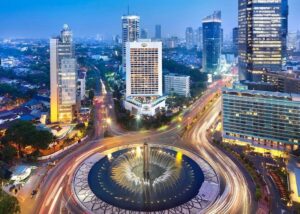
For far too long, the African continent has been portrayed as impoverished, with Hollywood films perpetuating stereotypes of a land devoid of law, culture, and order. This narrative, crafted by Western perspectives, sought to depict African lifestyles, cultures, and physical traits as aberrations from a so-called modern world.
Such misrepresentations have had profound psychological impacts, leading some Africans to internalize these negative perceptions. This internalization fostered a sense of inferiority, causing individuals to disdain their own skin color, facial features, hair, and heritage. The systemic stripping away of African identity was met with resistance; however, those who opposed these narratives often faced severe repercussions.
Understanding the intricate relationship between Africa and the world requires acknowledging historical injustices like slavery, which significantly hindered the continent’s potential. Despite calls to move past this history, the legacy of systemic racism continues to impede progress. Highlighting these issues is essential to dismantling the structures that perpetuate inequality.
In Mauritius, for example, there is a pervasive ideology suggesting that African heritage is synonymous with a legacy of slavery. However, this perspective overlooks the rich and diverse histories of African ancestors, who hailed from resource-rich regions and societies with complex social structures, including kingdoms led by kings and queens. These ancestors valiantly resisted colonialism and fought for their freedom.
It’s crucial to recognize that Africa’s history did not begin with slavery. Embracing the true depth of African heritage empowers individuals to reject false narratives designed to suppress.
Today, Africa is emerging as a pivotal player on the global stage. The continent’s abundant natural resources and youthful workforce have attracted interest from nations like China, Russia, France, and the USA. For instance, trade between China and Africa reached a record $282 billion in 2023, reflecting deepening economic ties.
Furthermore, Africa’s economic growth is notable. In 2024, growth in Sub-Saharan Africa is projected at 3%, up from 2.4% in 2023, with expectations to accelerate to 4% in 2025–26. This upward trajectory underscores the continent’s potential as a future economic powerhouse.
The African Continental Free Trade Area (AfCFTA), encompassing 1.3 billion people, stands as the largest free-trade area by number of member states after the World Trade Organization. This initiative aims to boost intra-African trade and strengthen economic integration across the continent.
Recognizing Africa’s true value and rich heritage is essential. By embracing our history and potential, we can redefine power dynamics and pave the way for a prosperous future.